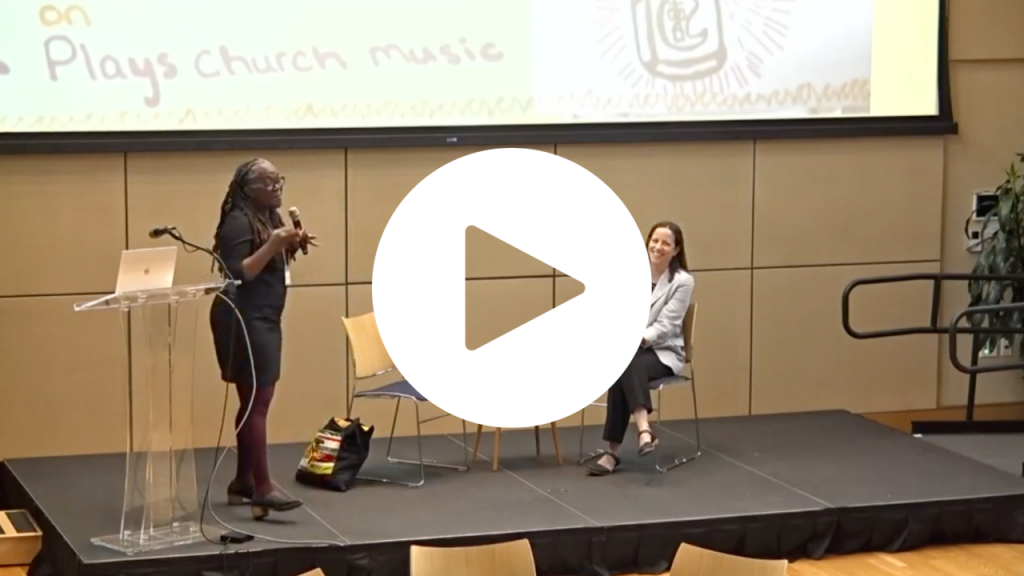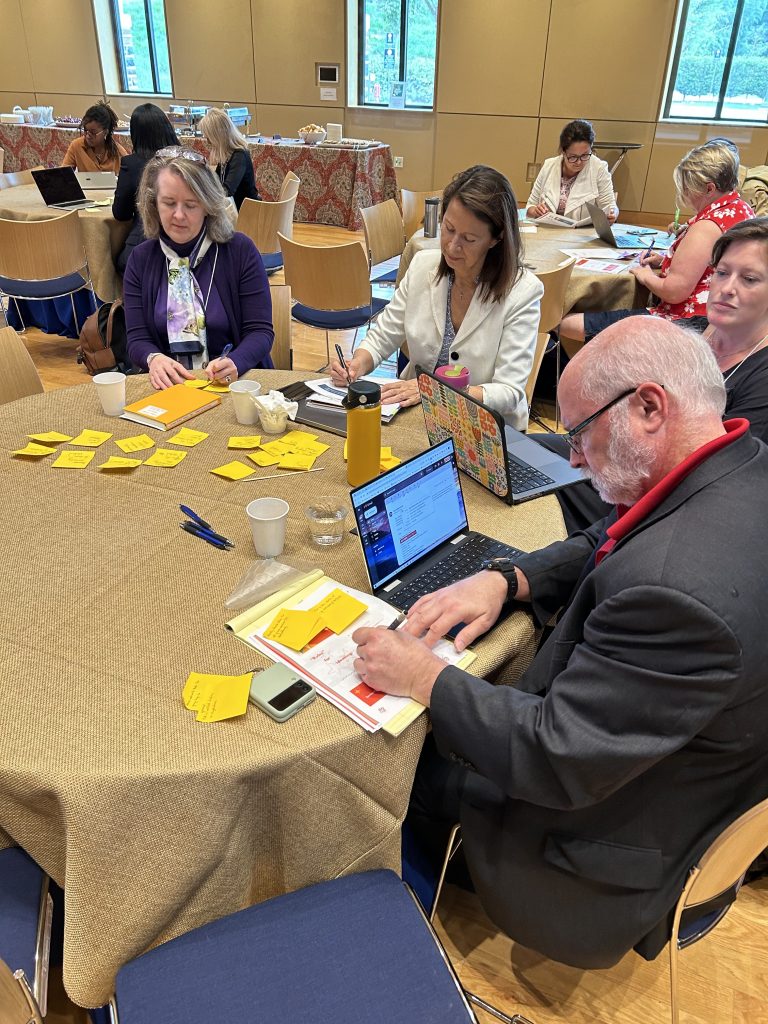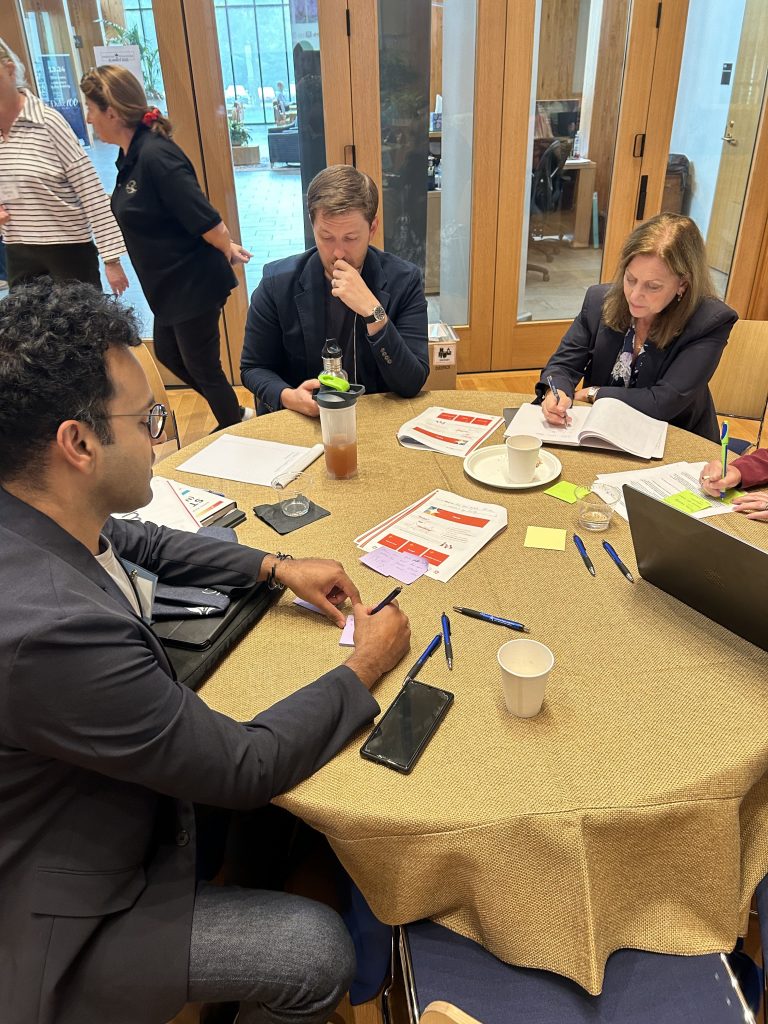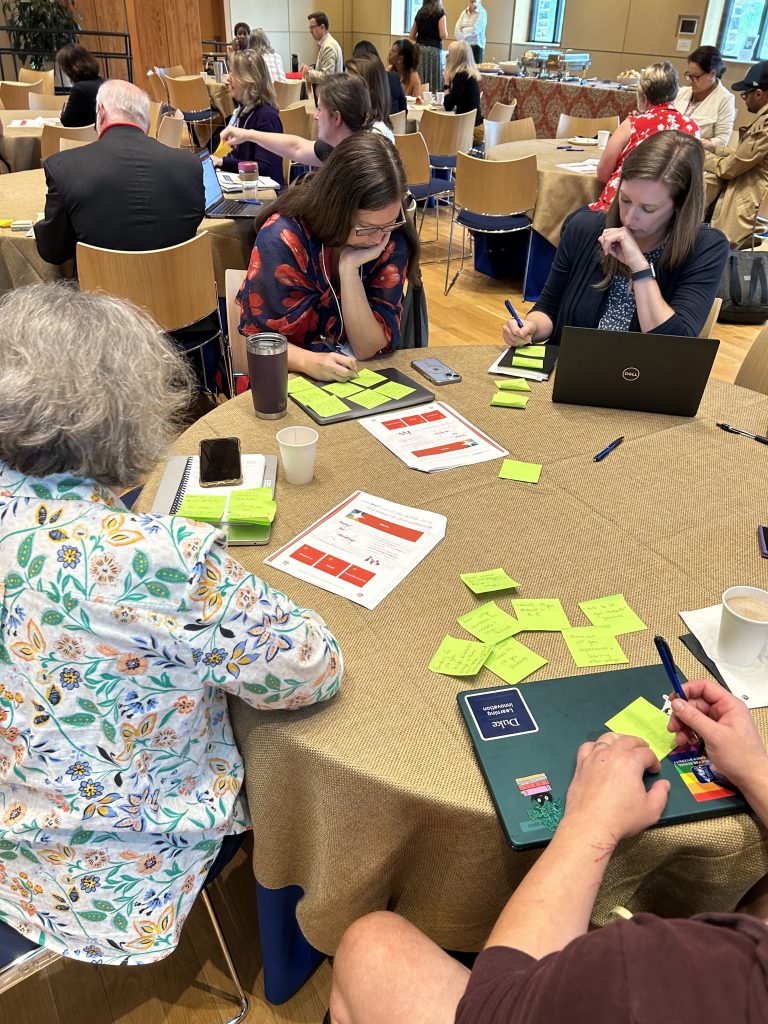By Aria Chernik and Xinzhu Wang
In early October, Learning Innovation hosted the inaugural Emerging Pedagogies Summit for Duke faculty and staff invested in teaching and learning. The Summit’s goal was to promote ongoing conversations about the future of education in hopes of shaping a future vision of pedagogy. In this blog series, we will revisit each session to reflect on the lessons shared by the presenters and envision how these emerging pedagogies may take root at Duke.
What if education could be a transformative experience for learners and educators? This question has shaped the work of both Aria Chernik, Associate Professor of the Practice in the Social Science Research Institute at Duke University, and Lesley-Ann Noel, Assistant Professor in the Department of Media Arts, Design, and Technology at North Carolina State University. One of the ways Aria and Lesley-Ann have sought to create these transformative experiences is through the use of design-based pedagogy, an innovative approach to teaching and learning that centers equity, collaboration, creative problem-solving, iteration, and empathy-driven research. In an effort to demonstrate how intentional design can be used to create hands-on, high-impact learning across myriad contexts, Aria and Lesley-Ann decided to redesign the traditional conference session format into three parts: lightning talks, a public conversation, and a micro sprint … All of which took place within 75 minutes! Click the image below to view the recording of the panel, “Design-Based Pedagogy for Transformative Learning: A Public Conversation and Micro-Sprint.”

The panel commenced with two lightning talks. Aria’s presentation, entitled “Education is not neutral,” uncovered the fact that education is designed with some unintentional elements hardcoded into the system. This raised a fundamental question: what if we use design to co-create equity-based transformative learning? To illustrate this, Aria shared her experience of applying open design, an equity-focused innovation methodology, in her course Participatory Solutions for Human Flourishing. In this course, students worked in small teams to develop a solution targeting real-world issues through the process of understanding > creating > evaluating > sharing. By developing a deep understanding of the problem and testing their prototypes, students composed a report that received grant funding. A guiding goal of this course is to develop students’ critical consciousness to understand the world as “a reality in process, in transformation.”
Lesley-Ann introduced the framework of empowering design education and offered her insights on the topic question: how can we use design to create transformative learning experiences? She emphasized that both skills and mindset are necessary, with the importance of the mindset often underestimated. Lesley-Ann then shared two stories of how instructors incorporated design in their courses: one in a Math class, where instructors created scenarios for students to apply ordinary differential equations to solve real-world problems. Another happened in a Latin course, where students designed games to teach Latin to children and got feedback from target students.
The following public conversation between Aria and Lesley-Ann delved deeper into the essence of design thinking. The conversation started with Aria’s question about the difference between general design thinking and Design Thinking in consumerism and capitalism. Lesley-Ann demonstrated that design thinking can be employed across various situations, from designing a physical product to addressing large social issues. Regardless of the problem scale, the process of applying design thinking is very similar: understanding people, experimenting, getting feedback, and going back and forth between those steps. The two speakers also discussed the complex nature of design, emphasizing that good design is usually messy, and we shouldn’t be scared away.
In the micro sprint activity (get a copy of the workbook here), Aria and Lesley-Ann aspired to engage the audience in the experience of brainstorming ideas to help solve complex educational challenges. Because they wanted to authentically center student voice throughout the sprint, Aria collaborated with Xinzhu Wang, Teaching Consultant at Learning Innovation, to conduct a focus group with students enrolled in Aria’s course, Building Next Generation Learning at Duke. Students responded to focus group questions related to three challenge areas:
- What if team-based, collaborative learning within a course could be a positive, high-impact learning experience for all student members of a group?
- What if generative artificial intelligence (like ChatGPT) could be integrated into courses in a way that teaches students about the benefits and cautions of AI?
- What if all first-generation college students arrived for their first day of classes at Duke feeling empowered to thrive academically?
Xinzhu analyzed the focus group data and created key takeaways from each challenge area, including insights, quotations and stories from students. These data guided the design work of the session participants, who used the takeaways as the foundation for brainstorming ideas that directly responded to student perspectives and lived experiences. Using prompts (like “tomorrow ideas,” “tough-to-accomplish ideas,” and “transformative ideas”) and time constraints, Aria and Lesley-Ann helped participants navigate the complicated process of ideation via divergent thinking. Participants then briefly shared their ideas through drawings and sketches and were offered reflection questions for further exploration.



Attendees at the Emerging Pedagogies 2023 Summit ideating during the micro-sprint activity.
It’s intriguing to contemplate on the diverse perspectives about education and design presented by panelists at Emerging Pedagogies Summit. While in the opening keynote Sanjay Sarma argued that education is not designed, this panel contended that many systems, including education, are designed. However, these positions aren’t inherently contradictory. When people assert that education is not designed, they are uncovering the flaws and irrational elements in the current education system, many of which have roots in histories and cultural reproductions. Conversely, the claim that education is designed implies that many aspects of education are the result of intentional decisions made by people and organizations. Both claims share the opinion that there are many aspects in education which we can make improvements through human-centered designing.
This panel offered valuable insights into how these improvements can be achieved and suggested methods, skills and mindset of the design-based pedagogy. Additionally, neither design or learning is clear and linear; they are often messy, complicated, and usually people need to move back and forth through the process. By acknowledging and embracing this messy and nonlinear nature of design and learning, we can resist the temptation of prioritizing efficiency and therefore develop genuine transformative learning experiences.
Interested in learning more about design thinking? Take a look at Duke’s free Coursera course Open Design, taught by Aria Chernik and Kevin Hoch.
ChatGPT-3.5 was used to review and improve the word-choice for an early draft of this blog post.
